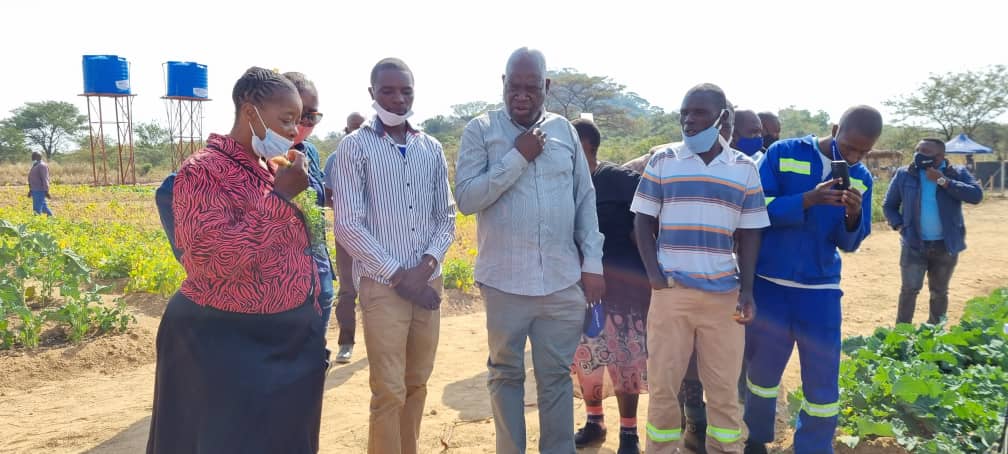Such NGOs, according to him, were centred on temporary relief anchored on regime change and it would be food for votes for a preferred candidate in the opposition.
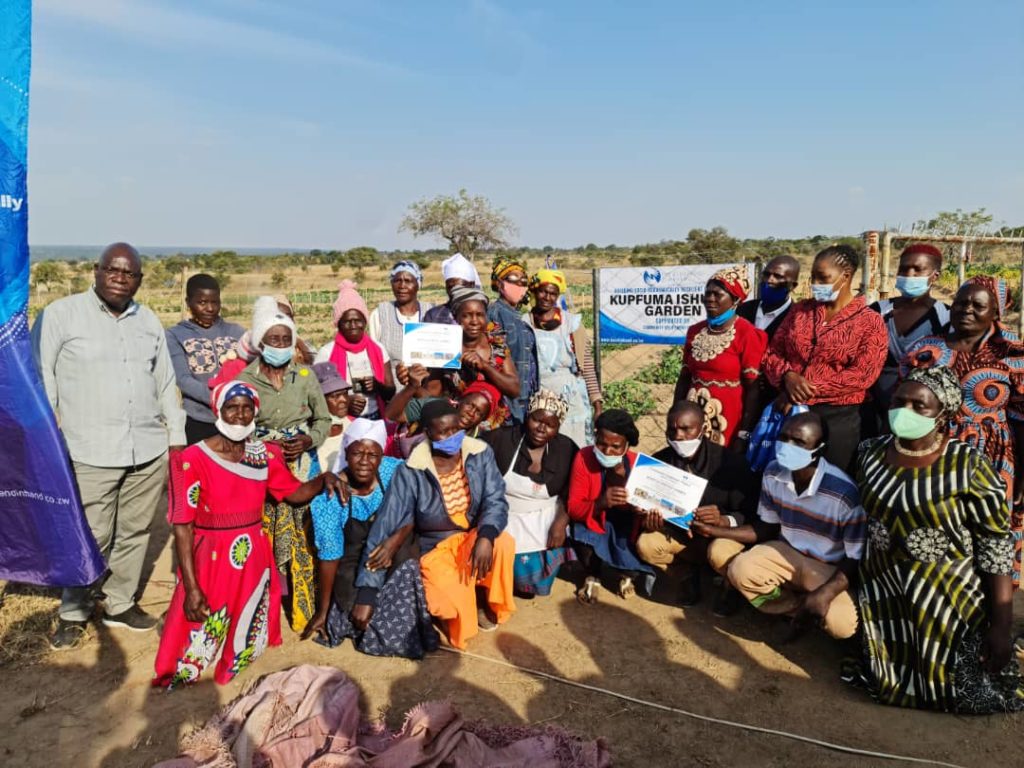
Over the years, Mr Tobaiwa said he never associated real and tangible growth with NGOs, whose agenda seems to be that of removing the elected Government from power.
As such, he was skeptical of the presence of NGOs in his district until he was introduced to Hand in Hand Zimbabwe.
Mr Tobaiwa is now the chairperson of a 20-member group called Kupfuma Ishungu, which has benefited from Hand in Hand Zimbabwe.
He said their association with Hand in Hand has resulted in an improved livelihood for him and the 19 members of the group and their families.
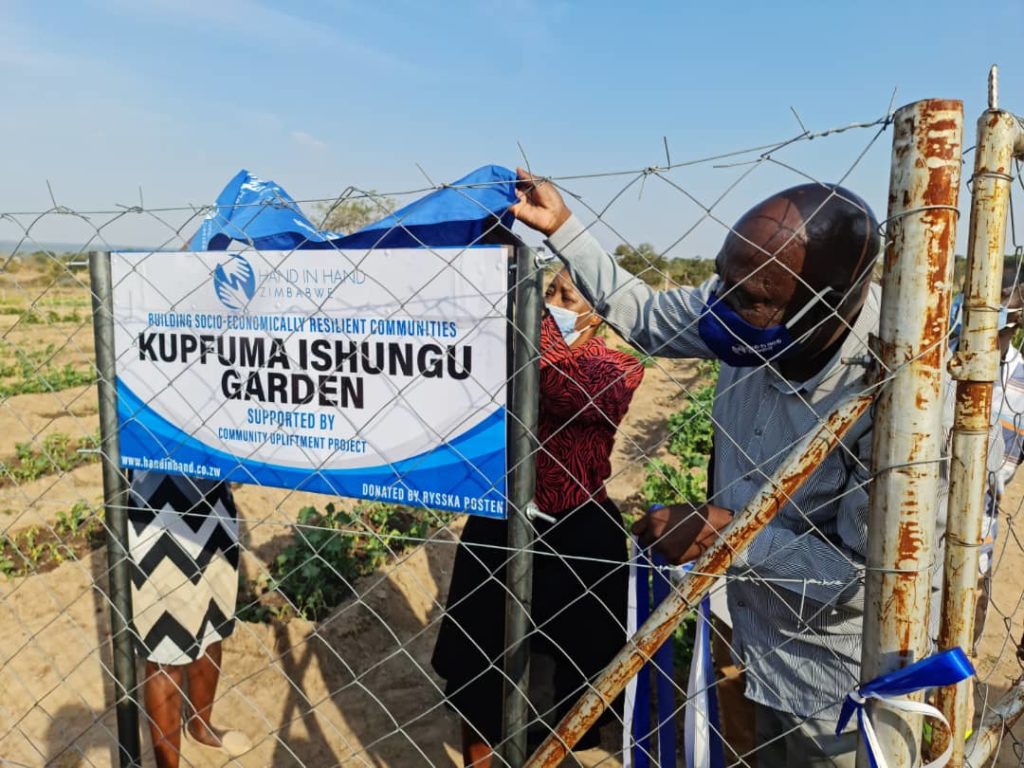
He said even at St Theresa Hospital, there is constant supply of fresh produce from the Kupfuma Ishungu garden which came to life after the intervention of Hand in Hand Zimbabwe. Hand in Hand invested US$14 000 by providing a solar-powered irrigation system, set up two by 5 000 litre tanks, 10 taps and a 50 by 100 meters’ perimeter fence and gate to keep animals away from the garden.
The garden is now a source of livelihood for Mr Tobaiwa and his members.
“This garden is a welcome development to us as members of Kupfuma Ishungu. We were all skeptical about associating ourselves with this NGO because from history- many of these NGO’s have been associated with regime change. They would come in during election year and give us food aid and nothing more,” he said.
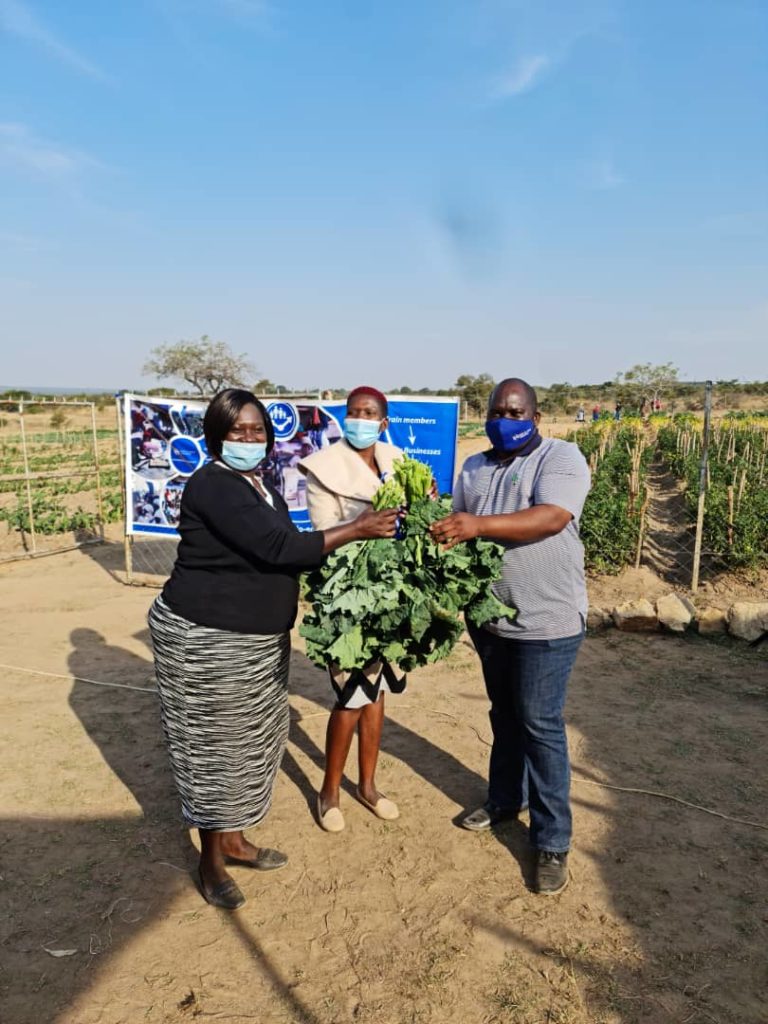
Mr Tobaiwa, a father of one, said food aid breeds failure as the beneficiaries will be on the receiving end and if the NGO pulled out, like the many that pulled away, they remained poor.
“Now we have been given the fishing rod. We have the garden, it is electrified and we allocated ourselves places to till the land. It was hard at first but we were then taught business skills, that is trading, looking for markets and knowing the best crops to plant at a particular season and time. We have old women and the young and we all benefited without proper educational qualifications. We know how to plant, reap, and sell our produce and this has changed our livelihoods,” he said.
Mr Tobaiwa said there were more than 20 members when they started working with Hand in Hand Zimbabwe in 2019 but only four men and 16 women are still committed to the project.
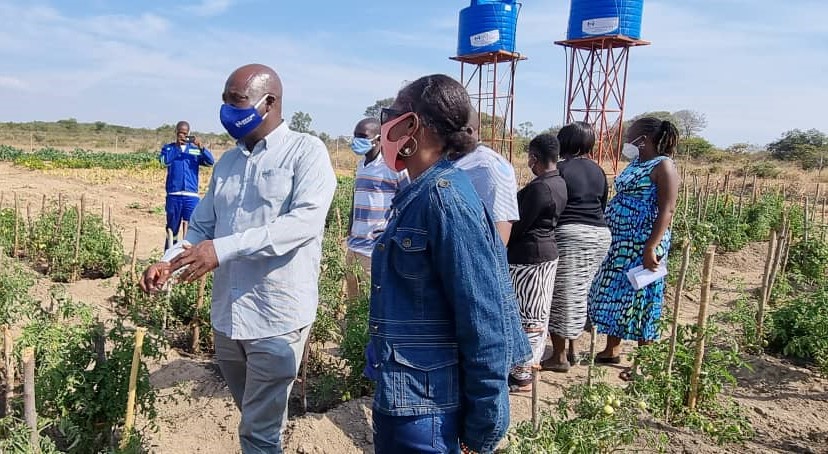
“Working on the land is not a walk in the park, it needs dedication and we are grateful to the Government that it gave us the land and we got sponsorship from Hand in Hand Zimbabwe and we now have our destiny in our hands. No NGO can come and detect what they want,” he said.
Gogo Benhildah Gwiri, another member of the group, said she is able to buy food, send for grandchildren from proceeds from the garden.
“The garden is working wonders for me as an individual and the rest of the group members. We produce and we have ready markets at the hospital and schools around us. I urge other people to utilise the land they have anywhere across the country because there are returns in the land,” she said.
Hand in Hand Zimbabwe handed over the garden to the group members early this week.
The organisation is presently supporting communities in Midlands, Matabeleland North and South provinces.
It has footsteps in seven districts from the mentioned provinces namely Bulilima, Chikomba, Chirumanzu Gwanda, Lupane, Nkayi and Shurugwi.
Headman Chin’ozho commended the NGO for changing the livelihood of the members.
“We want NGOs that are pro-development and non-political. I hear some NGOs have been banned in the country and that is good because we need to uplift the community and not discuss or be forced to participate in regime change,” he said.
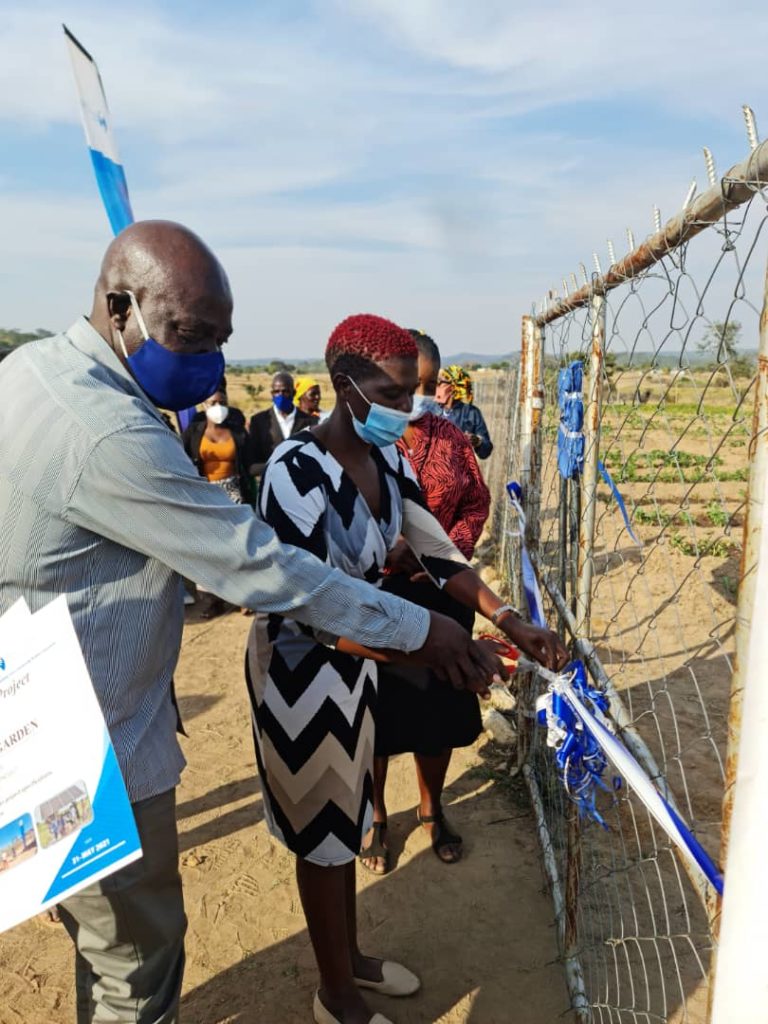
The organisation is implementing the following projects Jobs Creation Project; Motivated and Entrepreneurial Youth II (MEY) Project; Community Upliftment Project (CUP); Green Enterprises Project (GEP); Market Linkages Project; Strength in Children Project; and Daughters of Africa (DoA).
Hand in Hand Zimbabwe chief executive officer Mr Felix Tete said they are in the country to uplift communities.
He said it is the duty of NGOs to teach villagers how to fish and not just provide them with fish to eat.
“We are in three provinces and seven districts and we are involved in job creation, strengthening children projects among other things. It’s all to do with complementing what the Government is doing to improve the livelihoods of the people,” said Mr Tete.
Source: The Herald Zimbabwe

